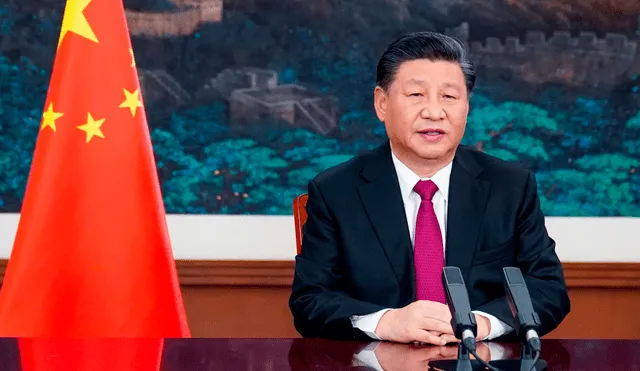China Responds to Washington's arms sales to Taiwan with sanctions on U.S. Companies
China responds to recent U.S. arms sales to Taiwan by imposing sanctions on 28 defense contractors, including Lockheed Martin and Raytheon. Understand the reasons and consequences of this geopolitical move.

In a significant escalation of tensions between the United States and China, Beijing has announced sanctions on 28 U.S. defense contractors, including industry giants Lockheed Martin, Raytheon, and Boeing Defense. These sanctions follow Washington's recent approval of arms sales to Taiwan, a self-governing island that China considers part of its territory.
The sanctions, announced by China's Ministry of Commerce, include restrictions on exporting dual-use items and adding several companies to its "unreliable entities" list. This move underscores Beijing's firm opposition to U.S. military assistance to Taiwan and highlights the growing divide between the two global powers.

ALSO SEE: Donald Trump withdraws the U.S. from Paris Climate Agreement, advocates for fossil fuel expansion
Why Did China Impose These Sanctions and the impact on relations with the US?
The root cause of these sanctions lies in the U.S.'s continued arms sales to Taiwan, which Beijing perceives as a direct challenge to its sovereignty. The latest arms deal, approved by Washington, includes advanced military equipment intended to bolster Taiwan's defense capabilities.
- Political Message: By targeting major defense contractors like Lockheed Martin and Raytheon, China aims to send a clear message to Washington about its stance on the Taiwan issue.
- Strategic Response: The sanctions also serve as a strategic countermeasure to deter future arms deals between the U.S. and Taiwan.
China has long maintained that U.S. military support for Taiwan violates the "One China" policy and destabilizes regional peace.
These sanctions add another layer of complexity to the already strained relationship between Washington and Beijing. Both nations have been at odds over trade policies, technology restrictions, and geopolitical disputes concerning Taiwan.
- Diplomatic Fallout: Increased tension could further reduce dialogue on critical global issues like climate change and economic cooperation.
- Economic Ripples: Restrictions on U.S. companies could also impact global supply chains and defense contracts.
Experts suggest that these sanctions are more of a symbolic warning than a direct economic threat, as most of the targeted firms have limited direct exposure to the Chinese market.
What Do the Sanctions Involve?
The sanctions imposed by China come with significant restrictions:
- Export Ban: Companies included in the sanctions are banned from exporting dual-use technology to China.
- Unreliable Entities List: Ten firms have been added to China's "unreliable entities" list, limiting their ability to operate in the Chinese market.
- Operational Challenges: Firms like Lockheed Martin and Raytheon may face disruptions in their international supply chains.
The decision, "based on China's export control law and regulation on export control of dual-use items", was taken to "safeguard national security and interest and fulfil international obligations including non-proliferation", the Chinese ministry said.
While these restrictions might not significantly impact the overall revenue of these defense giants, they symbolize the worsening state of U.S.-China relations.